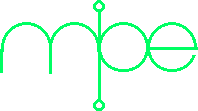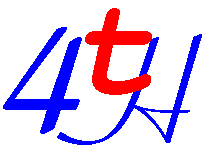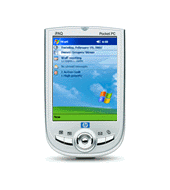Site Map
|

MPE Ltd's VXF Forth for Windows development system is now at version 3.6). This new version includes DLL generation, the PowerNet Telnet and web server with CGI and ASP. The VFX code generator has been enhanced with optional Pentium 4 specific optimisations. VFX Forth can be used with Windows 98, NT, 2000, ME and XP. [Details].

Computer Solutions Ltd., suppliers of embedded systems and Forth products, have released their December Embedded Newsleter. [Download]
cfdos is a Dos program to display colorForth source an create bootable colorForth floppy disks. A new Euroforth edition is available for download.
An update of the Forth Scientific Library interface file fs-util.4th contains a bug fix and an additional definition. [Details] The following FSL packages have also been ported to kForth:
The F11-UK 68HC11-based Forth embeddded computer developed by Jeremy Fowell with input from other members of the Group is out of stock. A new version is currently under development.
euroFORTH 2003 will be held on 17th-19th October, in Ross-on-Wye, England
The AGM will take place on Saturday 25th October. See pages 12 and 14 for further details.
Stephen Pelc, MD of MPE Ltd, has made source available for download
This is a complete C to Forth compiler with sorces. It is an MPE research project which we believe will grow better as a Forth community project.
Flint is a tool to provide type and stack checking to exsisting code rahter as Lint does for C sources. Stephen Pelc has posted a draft specification.
The aim is to encourage Forthers to contribute to a valuable public domain project.
In answer to a request on comp.lang.forth, Lschmidt offered a version of Forth for the EPOC, which uses 32-bit math. It is not native code though, but written in OPL32, the interpreter for the Psion 5.
Anton Ertl reports that version 0.6.2 is now available. It includes recent research on using super-instructions for optimisation.

MPE Ltd have released version 3.5 of VFX, which remains the fastest Forth on the planet. [Details]. An evaluation version of VFX that never times out and involves merely a polite nag screen is available free.

Triangle Digital Systems have released version 1.11 of Datalogger Wizard for their TDS2020F Forth embedded comuter recently. They also supply software enabling cusotmers to send and receive text messages on a TDS2020F using a GSM radio modem. These and other software products are available for free download from their website.
Bill Muench, developer of the well-known eForth, has re-published the source material.
A new website providing resources and a forum dedicated to Forth.
Ron Aaron announced that Win32Forth now has a bulletin board
Krishna Myneni has released a new version of xyplot for Windows. Version 1.1.3 for Windows now includes kForth(v1.0.14-2) and allows user-written Forth modules to be loaded, just like the Linux version.
Forth modules can be used to write new functions for xyplot and these functions can be added to the xyplot menus. The distribution file contains numerous examples of Forth modules (.4th files) for performing functions such as data smoothing, ploynomial fitting, etc. users can add their own.
F11-UK is a professional-quality low-cost kit developed by members of FIG UK which contains both hardward and software. It is suitable for both hobby and professional use and, because of its simplicity, is a great way to learn Forth. [Details].
The first production run of the kit has now sold out and an improved version is being planned.
Jeff Massung has published a tool for editing Forth on Windows. [Download]
Features include:
Jeff is hoping for encouragement to develop this tool further.
euroFORTH 2003 will be held on 17th-19th October, in Ross-on-Wye, England
With regret regret FIG UK has to report that Gil Filbey passed away recently after a long illness, aged 84
Gil was there at the formation of FIG UK, helping to make it happen, finding us a meeting place at the South Bank University and playing a significant part in the inevitable pub disscussions afterwards.
Gil is best known for his work as our Editor, creating the very first issue of Forthwrite and continuing for a truly remarkable 90 issues.
The name he chose also reflected his own approach, polite but firm. In one way and another, Gil has probably contributed more to the success of FIG UK than any other individual and it was gratifiying to see the immediate and genuine response from our members when his forced retirement was announced. We miss him.
Here is a brief FIG announcement from John Hall (former President)
In May the Forth Interest Group elected new officers:The first meeting of the new officers is being planned and the future direction of FIG will be decided.
- George Perry, President
- John Hall, Vice President
- John Carpenter, Secretary
- John Rible, Treasurer
FICL is a fast interpreter designed to be embedded into other systems as acommand, macro, and development protoyping language. [LATEST RELEASE]. This is a major revision - thanks to the relentless enrgy of Larry Hastings. The centrepiece is a completely rewritten inner interpreter that runs our benchmarks about three times faster than FICL v3.x.
4IM is a DOS-based Forth with a small footprint that owes a lot to ColorForth. The new release adds many useful improvements including CATCH and THROW.
David Williams has published an ANS Forth port of W. J. Cody's CELEFUNT package for testing the accuracy of compley elementary functions.

euroFORTH 2003 will be held on 17th-19th October, in Ross-on-Wye, England.
Neil Bawd has resurrected his famous web page which now includes 57 Forth code samples, some with tutorials. These include recursive and non-recursive versions of Quicksort.
Gary Chanson posted a couple of tools for dealing with DOS-based block files. One is a full featured block editor which supports multiple files, multi-file search and replace with regular expressions, and a lot more. The second is a pair of programs which do smart conversion of block files to text files and text files to block files.
Sam Tardieu has set up a public email gateway. This service will send comp.lang.forth postings to you as they arrive or collected into a digest and will post your emails messages back to the newsgroup.
Marcel Hendrix (author of iForth) has made available a set of Internet-related tools. To any Forth that can access sockets, the tools add examples for posting email, fetching email and news, telnet and using http to get web pages.
MegaWolf have announced the opening of a public forum for discussion of its own MacForth and any other Mac-related topics such as MOPS Forth. There are a number of advantages in using this forum over Usernet, such as avoiding spam and harvesting of email addresses.
The FSL needs a new team leader to continue Skip Carter's renowned efforts. Charles Montgomery, who has been a major contributor to the FSL, has offered his services "I do have some time available for helping with such an effort, do favor the concept and practices of the FSL as initiated by Skip, and am willing to try to help out in any way that 'the Community' would find useful."
W.J.Cody published MACHAR - routines for finding the mathematical characteristics of a computer in a portable way - such as the largest integer. David Williams has ported these to ANS Forth, Krishna Myneni has ported these also to kForth at
Marcel Hendrix has made available Perfectly Scientific's GiantInt library in addition to the older bignum.frt based on Knuth. Both provide routines for large integer arithmetic and number theory.
Big numbers are mainly used in factorization of large (prime) numbers. Encryption and privacy are areas that indirectly depend on efficient factorization techniques.

Hans Bezemer has upgraded 4th to v3.3d which now includes versions for 32-bit Windows as well as DOS and Linux. There are new words (eg DEFER) and multiple files/pipes can be used at once. 4th may be used as a standalone system or integrated with C, for example to provide scripting. It comes with extensive documentation and excamples, is close to ANS and, uniquely, claims to be crashproof.
Enth is a near-ANS multi-tasking Forth placed in the public domain by Sean Pringle. Unusually, it is standalone and does not require an operating system. Enth is block-based and shadow blocks are available for comments. Like Chuck Moore's ColorForth, Enth uses colour to specify how words are to be interpreted.
Andreas Kochenburger has published a small ANS Forth for DOS, DOS with DPMI, Windows and Linux. It is simple and portable, using a minimal amount of C code to implement the Forth virtual machine. It is robust, containing many crash-proofing features and also has a small interface to the Windows API.
Bernd Paysan reports that the next version of Gforth will use dynamic superinstructions as well as conventional threaded code for extra performance. It will continue to be entirely ANS-conforming. Two papers on superinstructions were presented at euroFORTH 2002, and one at euroFORTH 2001.
The Windows version is now compatible with the Linux version. Both executable and source packages are available for download.
nnSoft have announced new versions of nnCron, nnCron LITE and nnBackup (see page 27 in this issue). nnCron runs unattended to start applications, display messages, dial and hang up, shutdown/ hibernate and wake up your PC, manage clipboard/files/registry and much more. It is managed with easy-to-edit text crontab files and has a convenient graphical shell which can be used to remove, add, edit and run tasks, set up reminders and change program settings. New features include the power-saving management and extensive documentation in English.
In the previous issue, we reported that Bernd Paysan had contributed a Forth entry to the contest run by the 2002 International Conference on Functional Programming. Anton Ertl has analysed the results to find that "Bernd's "busy-bee" (entry 30) is 10th out of 168 entries. Congratulations! This is especially remarkable since Bernd worked alone and did not make use of all the available time."
Bernd writes about his entry at http://www.jwdt.com/~paysan/icfp.html
Howerd Oakford has improved CWeed, a well-proven program for tidying up the white-space in source files. It can convert a C source file to a prescribed layout standard, but is also useful for removing tabs, trailing spaces and double lines from any text file. Also PC <-> Unix format conversion, display of control characters etc...The download contains complete source for Win32Forth
With the aid of his minimal proposed pipes and sockets wordset, Marcel Hendrix has implemented short programs to send email, to receive email and receive news. The wordset and programs can be found at http://home.iae.nl/users/mhx/pipes&socks.html. The code is for iForth on WinNT 4.0 and Linux 2.0. iForth is a commercial product; but licences without cost will be considered if the community benefits.
4ePost is a new mailer from Jos v.d.Ven which is able to exchange email or news in ASCII using the Internet. Its special features are the speed and management of spam. This is an "open project" and contributions are encouraged. 4ePost requires Windows, Internet Explorer and Win32Forth. See http://home.planet.nl/~josv/m4ePost.html
Jos v.d.Ven has posted updates to several Win32Forth programs downloadable from http://home.planet.nl/~josv/msources.html including 3D Chess, Toolset and Scene v2.2
Brad Eckert has provided an extension for 16-bit and 32-bit ANS Forths. It provides 32-bit or 64-bit mantissas and 15-bit or 31-bit exponents, depending on your cell size. He also indicates 11 words which are candidates for programming in assembler. This is the first extension I have seen in this rather difficult area and a major contribution to the public domain. See http://www.tinyboot.com/float.txt

Wolf Wejgaard is well-known for his Holon system for Forth which handles source text in a tree structure of modules, groups and words. Whereas previous Holon systems have been dedicated to specific targets (x86/MSDOS, 68HC11, JavaVM), in the new HolonX the structured source text is "loaded" to a linear text file ready for an external compiler/interpreter. If you load the whole application, the complete source text is contained in this one file. You can also choose to load only one module, one group, or just one word. Internally, source is saved in an XML format. Wolf offers HolonX as a tool to experiment with structured source. See http://holonforth.com/tools/holonx.htm.
David Williams has upgraded the ^Forth to C translator for PFE to include floating point words, with a few other code generation revisions. The translator enables you to write in Forth and compile to C. You can also mix C code snippets in your Forth. See http://www-personal.umich.edu/~williams/archive/forth/hatforth/dir.html
Vrije Universiteit Brussel is the Free University of Belgium. The Principles of Programming Languages is one of the courses run by the Computer Science department which includes exercises in Pascal, Java, Smalltalk, Prolog and Forth. Phil Burke's ANS pForth is used for the exercises. See the course syllabus at http://progmc30.vub.ac.be/FV's%20Courses/CMP213/ and pForth at http://www.softsynth.com/pforth/
Jodell Bumatai has launched the SVFIG Musical Forth Words Project in conjunction with students of Cogswell College. Windows, Linux and Mac will be supported. Forth Programmers interested in music are welcome to join this project. See http://www.dolfina.org/tutorials/goforth.htm
Richard Collins has programmed a variant of ColorForth for Windows (works on Win2000). Now you can explore without having to boot from floppy. Download the 20K (!) executable from http://homepages.paradise.net.nz/rscollins/c4/
Bernd Paysan has designed a 16-bit MISC processor for the public domain with components obtained by negotiation with Hans Eckes (hanseckes@addcom.de). The architecture is inspired by the c18 chip and by ColorForth from Charles Moore and provides 32 instructions. The design comes with sample code and a simple programming environment and programs are downloaded via a serial line. See http://www.jwdt.com/~paysan/b16.html

Francois Vignon has offered his Forth implementation to others who might be interested (reach him at f.vignon@ifrance.com). Three other people have registered their application of Forth on iPaq at http://www.handhelds.org/z/wiki/HandheldsPeople
A new release is available which includes access to sub-directories. See http://sourceforge.net/project/showfiles.php?group_id=55294
Krishna Myneni reports that kForth v1.0.13 is now available for many versions of Linux including Mandrake 9.0. See http://ccreweb.org/software/kforth/kforth.html
Samuel Tardieu has greatly improved the compiler and documentation for this cross-compiler. PicForth generates code for the Microchip PIC 16F87x microcontroller family and is hosted on Gforth. For downloads and examples, see http://www.rfc1149.net/devel/picforth
Forth Inc. have announced a new product, SwiftX-SC, a version of SwiftX for the Atmel AT90SC flash-based smart cards (based on the AVR mpu). This product was exhibited in a preliminary form at the Cartes smart card show in Paris in October, and is now ready for shipment. See http://www.forth.com